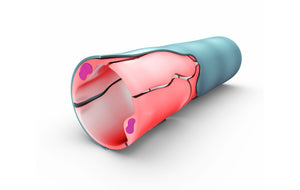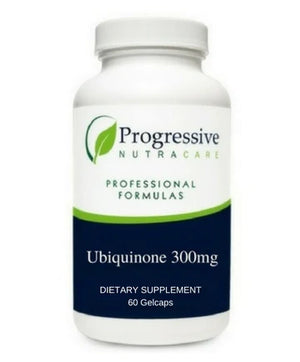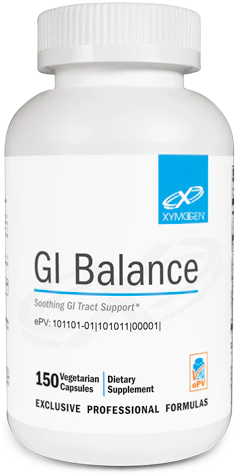Top 5 Reasons You Should Be Taking Vitamin D

Our bodies are elegant and complex, constantly striving for a state of balance. Nutrient deficiencies are one of the most common reasons that our bodies become out of balance. Vitamin D deficiencies are one of the most common nutrient depletion's we observe in the human population and according to a 2011 study, 41.6% of adults in the US are deficient. This number goes up to 69.2% in Hispanics and 82.1% in African-Americans. As many as 1 billion people across the globe have a vitamin d deficiency, according to some estimates.
Vitamin D is one of the most common dietary supplements to be recommended by a health care practitioner in the US. The reason is twofold: Vitamin D is a crucial nutrient to optimal health involved in tissue specific functions ranging from your immune system, to bone health, to your reproductive system, etc. Secondly, a lack of vitamin D is a precursor to disease and dysfunction. We will talk more about this later.
What is Vitamin D and Why is it So Important?
Vitamin D is a fat soluble vitamin that is stored in the liver and fatty tissue. Your body is designed to make Vitamin D on our own through a process called biosynthesis. This process is dependent on the presence of UV radiation from sunlight. While dietary intake is important, unlike most vitamins, we don’t have to rely on dietary sources. Read below for dietary sources of vitamin D.
The biosynthesis of vitamin D begins with the presence of a compound called 7-dehydracholesterol, the “cholesterol in our skin”. When UV-B rays land on the skin, they convert this compound into vitamin D3. Further modifications occur in the liver and kidneys before your body utilizes vitamin D. Large amounts of vitamin D are made in your skin once exposed to sunlight, and this process happens rather quickly. You don’t need to “burn” your skin to produce sufficient amounts of Vitamin D. In fact, your body can produce anywhere from 10,000 to 25,000 IU’s in as little as 30 minutes. Factors such as the time of the day, where you are in the world, and the color of your skin can affect the amount of vitamin D you produce. The pigment melanin, which affects how light or dark your skin color is, controls this process. The more melanin you have, and therefore the darker your skin, the less vitamin d you will produce through Biosynthesis.

Bone Health
Perhaps the most traditionally recognized role of vitamin D is its role in proper bone health. Vitamin D enhances the intestinal absorption, and the serum regulation, of Calcium and phosphorus. It also is critical to bone mineralization. Low levels of Vitamin D are associated with softening of the bones, called osteomalacia, as well as the bone abnormality called Rickets. Long term deficiencies may increase your risk of developing osteoporosis, a condition that causes thinning and weakening of the bones. Older adults with sufficient levels of vitamin D are more likely to be more active, have improved muscle strength, and are less susceptible to falls and injuries.
Cancer Prevention
According to a recent study, researchers attempted to review the link between vitamin D and cancer as well as propose a mechanism that the vitamin plays against the development and progression of certain types of cancers. Several of the findings are of significance to cancer prevention:
- Low circulating levels of vitamin D are associated with increased risks of developing cancer.
- A high intake of vitamin D is associated with a reduced risk of developing cancer
- The aggressiveness of a cancer is typically lower in summer months when the production of vitamin d is higher
- Polymorphisms(genetic modifications) of genes involved in the signaling pathways of vitamin D effect the risk of developing cancer
In vitro, studies have demonstrated that exposure of tumor cells to high concentrations of vitamin D inhibit their proliferation. This is a key finding. While much research is needed to identify mechanisms of action, there is ample evidence to suggest a link to multiple cancer types, including breast cancer, prostate cancer, melanoma, colorectal cancer, and endocrine tumors.
Immune Function and Inflammation
Every Immune cell in our body contains receptor for Vitamin D. Healthy cell function and replication appears to rely on sufficient bioactive levels of Vitamin D. Recent studies suggest that vitamin D modulate the activity of various defense and immune cells including blood monocytes, macrophages, and CD4 T-cells. It is well established that biologically active D3 modulate lymphocyte proliferation and function. Lymphocytes are a critical component to your bodies’ adaptive immune system that allows your immune cell to mount a reaction to harmful antigens as well as develop long term immunity.
Additionally, vitamin D has been shown to prolonged and excessive inflammatory response. Inflammation is often associated with many chronic diseases and is typically considered a potential risk factor for the development of cancer, heart disease, and other disorders.
Heart Disease
Vitamin D has a well-established role in regulating blood pressure, cholesterols, and inflammation. As such, vitamin D deficiency has been identified as a risk factor for developing cardiovascular disease.
Animal studies have demonstrated that interruption into vitamin D signaling promote hypertension and atherosclerosis. Additionally, according to this study, Vitamin D deficiency is associated with an increased risk of dying from coronary heart disease.
Diabetes
Several studies have looked into the role of vitamin D in the development and progression of diabetes. Research indicated that vitamin D deficiency has been linked to the onset of diabetes mellitus. Diabetes is a condition in which your body is unable to process or metabolize blood sugar or your pancreas produces little to no insulin. Calcium is necessary for insulin secretion and because vitamin D increases the calcium absorption, evidence points to vitamin D as being critical to healthy blood sugar levels.

How Can I Get Vitamin D?
As mentioned above, the number one way to maintain healthy vitamin D levels is to have regular sun exposure. Individuals should attempt to have 15-30 minutes of sun exposure every day. These times vary depending on the relative skin darkness. Making an effort to get sun exposure should be a priority for maintaining optimal levels. Unfortunately, busy schedules, weather patterns, and seasonal changes make this difficult. It’s hard to get 30 minutes of sun when its 30 degrees Fahrenheit outside. It is not abnormal to observe season variation in serum vitamin D levels, primarily due to prolonged lack of sun exposure particularly during winter months. So, we need to turn to other options.
Below are some of the best dietary sources of Vitamin D:
- Fatty fish such as Tuna mackerel and salmon. 3 ounces of cooked salmon can contain 500-600 I.U’s of vitamin D. It is always best to opt for wild caught options. Farm raised salmon can be fed diets that can alter the productions of vitamin D, as well as omega 3 fatty acids.
- Grass fed beef liver.
- Pasture-raised organic free range eggs.
- Other sources include oysters, eel, catfish, sardines, clams, and blue crab.
The number of food items that do contain naturally occurring vitamin D are relatively limited. There are a number of foods that are fortified with vitamin D such as dairy products and some cereal products. The problem is that they are typically using vitamin D2, an inferior form.
Dietary supplements then become a great option, particularly during the winter months. Two main options are cod liver oil as well as isolated vitamin D capsules or liquids.
Cod liver oil is a great source of vitamin D. Cod liver oil packs a nutrient dense punch. On top of being rich in omega 3 fatty acids and Vitamin A, cod liver oil is very rich in vitamin D. In fact, 1 tablespoon can contain about 1500 IU’s. The taste profile of cod liver oils on the market has improved significantly. There are also capsule versions available to those that are still aversive to the taste.
Vitamin D supplements are a very common option. These are typically packaged in gel caps or liquids. There are powder capsules or tablets available. Vitamin D is a fat soluble vitamin so dry capsules and tablets are not preferred. Doses range from 1,000 I.U.’s up to 50,000 I.U’s. We will discuss dosing below. Whichever form you decide to use, the take away is the same: Vitamin D supplements are an easy and effective strategy to get your vitamin d levels up to range and keep them there, particularly during winter months.
Recommended Intake
The best way to determine an effective dose is to get your levels checked. This is a common test and is a component of most basic chem labs. Additionally, any integrative practitioner worth their salt is going to want to know your levels. This is an effective strategy to get a specific dose that is right for you.
In the absence of this data or if you are supplementing alone, Vitamin D is relatively safe as long as you follow certain guidelines.
For children under the age of 4, stick with 30 I.U.’s per pound of body weight per day. For children ages 4-10, use 1000 I.Us per day. Gummies or chewable tablets are great options for children and are available in appropriate children’s doses.
For adults, it’s safe to take 5,000 I.U’s daily. If your levels are low, it is typical to see a loading dose of 25,000 to 50,000 I.U’s daily until levels are in range and then drop down to 5,000. Another nutritional strategy is to increase the level during the onset of colds and flus to reduce the length and severity because of Vitamin D’s potent immune modulating affects.
To be clear, below are the USDA’s official recommendations for vitamin D intake.
Children:
- 1–3 years: 600 IU (15 mcg/day)
- 4–8 years: 600 IU (15 mcg/day)
Older Children and Adults:
- 9–70 years: 600 IU (15 mcg/day)
- Adults over 70 years: 800 IU (20 mcg/day)
- Pregnant and breastfeeding: 600 IU (15 mcg/day)
- Joshua Lovern







Comments 1
Jaye Salamone
Especially want to provide vitamin D to family, friends, and clients who need to be proactive for this next season that some are calling “twindemic”. With the push to get flu shots now, I like to promote Vitamin D to increase the immune systems ability to fight these health enemies.